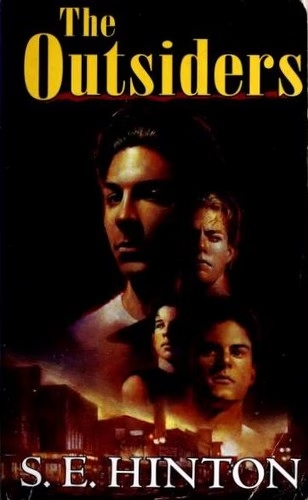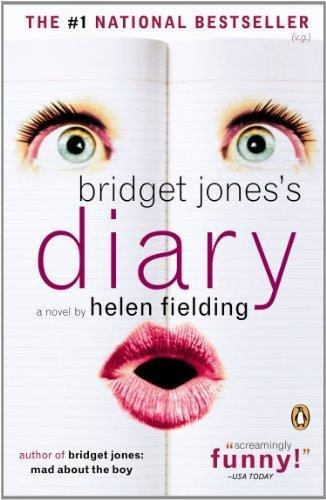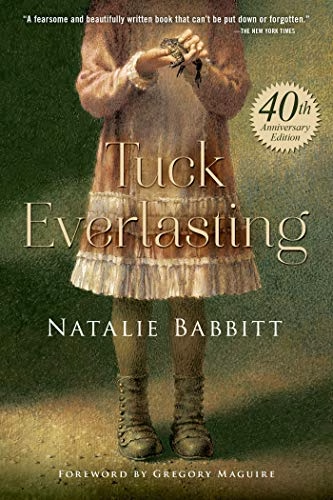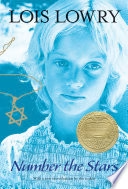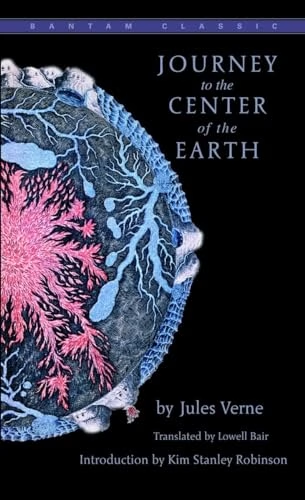Plot Summary
Introduction to the Greasers and Socs
The story is narrated by fourteen-year-old Ponyboy Curtis, a member of a gang of working-class teens known as the “Greasers” on the East Side of Tulsa, Oklahoma. He lives with his two older brothers, the serious and overworked Darrel (“Darry”) and the charming, happy-go-lucky Sodapop. Their parents were killed in a car accident, leaving Darry, only twenty, as the legal guardian. The Greasers’ rivals are the “Socs” (short for Socials), the wealthy teens from the West Side. The conflict between the groups is a constant source of tension.
The narrative begins with Ponyboy walking home alone from a movie when he is jumped by a carload of Socs. They threaten him with a knife and are about to cut his long, greasy hair—a trademark of the Greaser identity—when his brothers and fellow gang members arrive and chase the Socs away. The gang includes:
* Dallas “Dally” Winston: The toughest and most cynical of the group, hardened by a criminal past in New York.
* Johnny Cade: A timid, sixteen-year-old boy from an abusive home, whom the gang treats as their “pet.” He was brutally beaten by Socs months earlier and has been traumatized ever since.
* Two-Bit Mathews: The wisecracking oldest member, known for his black-handled switchblade.
* Steve Randle: Sodapop’s best friend and an expert on cars.
This initial confrontation establishes the deep-seated animosity and ever-present danger that defines the Greasers’ lives.
A Night at the Drive-In
The next night, Ponyboy, Johnny, and Dally go to a drive-in movie. Dally harasses two Soc girls, Sherri “Cherry” Valance and Marcia. Johnny, who idolizes Dally, surprisingly stands up to him and tells him to leave the girls alone. Dally stalks off, and Ponyboy and Johnny sit with the girls. Ponyboy and Cherry connect on a personal level, discovering they share a love for reading and watching sunsets. Cherry explains that the main difference between Greasers and Socs isn’t money, but emotion: Socs are cool and aloof to the point of not feeling anything, while Greasers are too emotional. She tells Ponyboy, “Things are rough all over.”
As Ponyboy, Johnny, and Two-Bit walk the girls home, their boyfriends, Bob Sheldon and Randy Adderson, arrive in a blue Mustang. To prevent a fight, Cherry and Marcia leave with the Socs. Before she goes, Cherry tells Ponyboy she could fall in love with Dally Winston, but also that she couldn’t say hello to him at school, highlighting the powerful social barriers between their groups.
The Murder in the Park
Ponyboy arrives home late, and a worried Darry confronts him. Their argument escalates, and Darry slaps Ponyboy—the first time anyone in his family has hit him. Shocked and hurt, Ponyboy runs out of the house and finds Johnny. They decide to run away. They wander to a local park to cool off, but the blue Mustang reappears, carrying Bob, Randy, and three other drunken Socs.
The Socs attack them for “picking up their girls.” One Soc begins drowning Ponyboy in the park’s fountain. Terrified and seeing his friend about to be killed, Johnny pulls out his switchblade and stabs Bob, killing him instantly. The other Socs flee. Ponyboy comes to, and they realize the gravity of what has happened. Panicked, they decide their only hope is to find Dally.
The Escape to Windrixville
Ponyboy and Johnny find Dally at a party. Calm and resourceful, Dally gives them fifty dollars, a loaded gun, and a plan. He instructs them to hop a freight train to the nearby town of Windrixville and hide in an abandoned church on Jay Mountain until he can come for them. Following his instructions, the two boys successfully escape and make their way to the secluded church.
Life in Hiding
For the next five days, Ponyboy and Johnny live in the abandoned church. To disguise themselves, they cut their hair, and Johnny bleaches Ponyboy’s blond. This is a significant sacrifice for Ponyboy, as his hair is a key part of his Greaser identity. They pass the time reading Gone with the Wind aloud. Johnny is particularly impressed by the gallant Southern gentlemen in the book, comparing their heroic chivalry to Dally’s willingness to take the blame for crimes he didn’t commit.
One morning, watching the sunrise, Ponyboy recites Robert Frost’s poem, “Nothing Gold Can Stay,” which resonates deeply with Johnny. The poem becomes a symbol for their fleeting innocence and the precious, transient nature of youth. Their time in hiding deepens their friendship, as they share their fears and dreams away from the violent world of their neighborhood.
The Church Fire and a Heroic Act
Dally eventually arrives to check on them. He takes them to a Dairy Queen, where he informs them that the Greaser-Soc tensions have escalated into all-out warfare, with a big “rumble” scheduled for the next night. He also reveals that Cherry Valance has become a spy for the Greasers, feeling responsible for the events that led to Bob’s death.
Johnny announces that he has decided to turn himself in, believing he has a good chance of being let off easy due to self-defense. Dally, hardened by his own experiences in jail, furiously objects, telling Johnny he doesn’t want him to become tough and unfeeling like him. As they drive back to the church to gather their things, they find it engulfed in flames. A group of schoolchildren on a picnic had been playing inside, and several are now trapped.
Without hesitation, Ponyboy and Johnny run into the burning building to save the children. They manage to pass all the kids out through a window just as the church’s roof begins to collapse. Johnny shoves Ponyboy out the window to safety, but a falling piece of timber strikes Johnny across the back. Dally rushes in and pulls Johnny from the inferno, but all three boys are injured and rushed to the hospital.
The Aftermath and the Rumble
Ponyboy and Dally suffer minor burns, but Johnny is in critical condition with a broken back and severe third-degree burns. The newspapers, which had previously vilified them, now hail them as heroes. However, the authorities are considering placing Ponyboy and Sodapop in a boys’ home.
The day of the rumble, Ponyboy is still feeling ill but is determined to fight. He has a conversation with Randy, Bob’s best friend, who tells him he is sick of the violence and will not participate in the rumble. Randy explains that Bob was a good person who was spoiled by his parents and was just looking for someone to set limits for him. The conversation helps Ponyboy see the Socs as individuals, not just a rival gang. Before the rumble, Ponyboy and Two-Bit visit Johnny and Dally in the hospital. Johnny is weak and fears he is dying. Dally, determined to avenge Johnny, asks for Two-Bit’s prized switchblade.
The Deaths of Johnny and Dally
Dally manages to leave the hospital and joins the Greasers just as the rumble begins. The fight is brutal, but the Greasers emerge victorious. Immediately after, Dally grabs Ponyboy and rushes him to the hospital, telling him Johnny’s condition has worsened. They arrive just as Johnny is dying. Johnny’s last words to Ponyboy are a whispered plea: “Stay gold, Ponyboy. Stay gold…” He then dies.
Overwhelmed by grief, Dally loses control. He runs from the hospital, robs a grocery store, and calls the gang to tell them he’s on the run and to meet him at the vacant lot. When the police corner him there, Dally pulls out his unloaded gun. The police, believing it’s a threat, shoot and kill him. Ponyboy realizes Dally wanted to die; losing Johnny, the one person he truly loved, had destroyed his will to live.
The Final Reckoning
Ponyboy collapses from the emotional trauma and a concussion sustained during the rumble. He is delirious for several days, refusing to accept Johnny’s death and convincing himself that he was the one who killed Bob. He is eventually cleared of all charges at a court hearing, and the judge allows him to remain with his brothers.
However, Ponyboy becomes apathetic and emotionally numb. His grades plummet, and he starts picking fights. The mounting tension at home culminates in a fierce argument between Ponyboy and Darry. Sodapop, unable to bear their fighting any longer, runs from the house. When they catch up to him, he breaks down, explaining that he feels torn between them, like the middleman in a tug-of-war. Shaken, Darry and Ponyboy promise to stop fighting. For the first time, Ponyboy sees Darry not just as a strict guardian but as a young man who has sacrificed everything for his family.
Finding Purpose
Back home, Ponyboy finds a letter Johnny had written to him, tucked inside the copy of Gone with the Wind. In the letter, Johnny explains what he meant by “stay gold”—that Ponyboy should hold onto his youthful innocence and his appreciation for the world’s beauty. He also tells Ponyboy that saving the children was worth it and that there is still good in the world.
Inspired by Johnny’s words, Ponyboy realizes he can prevent other boys from suffering the same fate. He decides to write his semester theme for English class to tell their story, hoping to make people understand the lives of boys like Johnny and Dally. The novel ends with the opening sentence of his essay: “When I stepped out into the bright sunlight from the darkness of the movie house, I had only two things on my mind: Paul Newman and a ride home…”
Characters
Ponyboy Curtis
The narrator and youngest member of the Greasers, Ponyboy is intelligent, sensitive, and introspective. Unlike his peers, he appreciates sunsets, poetry, and movies, which sets him apart and often makes him feel like an outsider within his own group. His journey is one of coming of age, as he grapples with violence, loss, and the complex social dynamics of his world. He initially resents his oldest brother, Darry, for being too strict, but eventually comes to understand that Darry’s hardness stems from love and a fear of losing him. Ponyboy’s narrative is a search for identity and an attempt to find the good in a world that seems determined to crush it.
Johnny Cade
The “gang’s pet,” Johnny is a quiet, frightened sixteen-year-old who comes from a neglectful and abusive home. The Greasers are his true family. A brutal beating by the Socs left him permanently anxious and jumpy. Despite his timid nature, he possesses a core of inner strength and loyalty, which is shown when he kills Bob to save Ponyboy and later when he heroically rescues children from the fire. Johnny’s tragic death serves as the catalyst for the story’s climax, and his final plea for Ponyboy to “stay gold” becomes the novel’s central moral imperative.
Dallas “Dally” Winston
The most hardened and volatile member of the gang, Dally is a product of New York’s tough streets. He is bitter, cynical, and prides himself on his criminal record. He affects a tough exterior to protect himself from a world that has only ever hurt him. His one vulnerability is his love for Johnny, whom he views as a younger brother in need of protection. Johnny’s death shatters Dally’s hardened shell, leading him to orchestrate his own death by “suicide-by-cop,” as he can no longer bear to live in a world without the one person he loved.
Darrel “Darry” Curtis
Ponyboy’s oldest brother and guardian, Darry is a former star football player who gave up a college scholarship to work two jobs and support his family after their parents’ death. He is serious, responsible, and often appears cold and demanding to Ponyboy. This creates significant friction between them. However, his strictness is revealed to be a manifestation of his deep love and his terror of the authorities splitting up their family. His reconciliation with Ponyboy is a crucial part of the story’s emotional resolution.
Sodapop Curtis
The middle Curtis brother, Sodapop is exceptionally handsome, charismatic, and carefree. He dropped out of school because he felt he was “dumb,” and he works at a gas station. He serves as the emotional buffer between Darry and Ponyboy, constantly trying to keep the peace. Beneath his cheerful exterior, however, he nurses his own private pains, particularly his heartbreak over his girlfriend, Sandy. His breakdown near the end of the novel forces his brothers to realize how their conflict is tearing him, and the family, apart.
Sherri “Cherry” Valance
A Soc cheerleader and Bob’s girlfriend, Cherry is intelligent and perceptive. She defies the stereotypes of her social class by connecting with Ponyboy and recognizing the humanity in the Greasers. She acts as a bridge between the two warring factions, providing the Greasers with information and testifying on their behalf. However, she is ultimately constrained by the loyalties of her social group and cannot bring herself to visit Johnny in the hospital, illustrating the powerful and tragic divisions that define their world.
Core Themes
Bridging the Class Divide
The novel’s central conflict is the violent class struggle between the poor Greasers and the wealthy Socs. The groups are defined by their economic status, their style, and their territory. However, the story systematically breaks down these superficial divisions. Through the friendship between Ponyboy and Cherry, the novel argues that shared human experiences—like watching the same sunset—can transcend social labels. Randy’s admission that Socs also face their own pressures reinforces Cherry’s poignant observation that “things are rough all over,” suggesting that pain, fear, and the search for identity are universal.
The Loss of Innocence
The Outsiders is a profound exploration of innocence lost too soon. The characters are forced to confront adult realities of violence, death, and social injustice at a young age. This theme is most powerfully embodied by Johnny, who goes from a traumatized victim to a killer, a hero, and finally a martyr. The Robert Frost poem, “Nothing Gold Can Stay,” serves as the story’s central motif, symbolizing the precious but ephemeral nature of youth. Johnny’s final words to Ponyboy, “Stay gold,” are a plea for him to resist the hardening effects of his environment and preserve his unique sensitivity and capacity for seeing good in the world.
Chosen Family and Loyalty
For many of the Greasers, particularly Johnny Cade, the gang is more of a family than their biological relatives. They provide one another with the emotional support, protection, and sense of belonging they desperately need. Their code is simple but absolute: “stick together.” This unwavering loyalty is their greatest strength. They defend each other against the Socs, the police, and the world at large. Dally’s ultimate breakdown is not just due to Johnny’s death, but to the loss of the one person who gave his life meaning—the anchor of his chosen family.
Self-Identity and Individuality
Ponyboy constantly struggles with the label of “Greaser.” While he is loyal to his gang, he feels like an “outsider” because of his interests in literature and art. He is not a natural hoodlum and resists the pressure to become “tough.” The novel is a chronicle of his journey to reconcile his individual identity with his group affiliation. He learns that a person is not defined by their social label, haircut, or wealth, but by their character, choices, and courage. His decision to write down his story is the ultimate assertion of his individuality—using his unique perspective to create understanding and honor his fallen friends.
Plot Devices
First-Person Narration
The story is told exclusively from Ponyboy Curtis’s point of view. This narrative choice creates an intimate and deeply personal tone, allowing the reader to experience events through the eyes of a sensitive and thoughtful teenager. We are privy to his fears, his confusion, and his moments of insight. This subjective lens makes the characters and their struggles feel immediate and authentic, fostering a powerful sense of empathy that transcends the social labels of “Greaser” and “Soc.”
Circular Structure (Framing Device)
The novel famously begins and ends with the almost identical line: “When I stepped out into the bright sunlight from the darkness of the movie house…” The final chapter reveals that the entire book is the autobiographical theme Ponyboy is writing for his English class. This framing device transforms the story from a simple recounting of events into a purposeful act of creation. Ponyboy is not just a passive victim of his circumstances; he is an author who takes control of his narrative to give a voice to the voiceless and to find meaning in tragedy.
Symbolism
- Sunsets and Sunrises: These are a powerful symbol of the beauty and unity that connect all people, regardless of social class. For Ponyboy and Cherry, their shared appreciation of sunsets represents a bridge between the worlds of the Greasers and the Socs, highlighting their common humanity.
- Greaser Hair: Long, greased hair is the primary symbol of the Greaser identity. It is a source of pride and a visual marker of their rebellion and brotherhood. When Ponyboy and Johnny are forced to cut their hair while in hiding, it represents a profound loss of self.
- The Blue Mustang: This car symbolizes the wealth, power, and intimidating presence of the Socs. Its appearance consistently foreshadows danger and violence, serving as a menacing reminder of the class divide and the threat the Socs pose to the Greasers.
Foreshadowing
The narrative is woven with hints of future events. Early in the book, after recounting the brutal beating Johnny previously suffered, Ponyboy notes that Johnny now carries a switchblade and “would kill the next person who jumped him.” This directly foreshadows the fatal encounter with Bob in the park. Similarly, Dally’s reckless behavior and bitter outlook on life hint at his eventual, tragic demise, suggesting that a boy so full of rage and pain is destined for a violent end.

